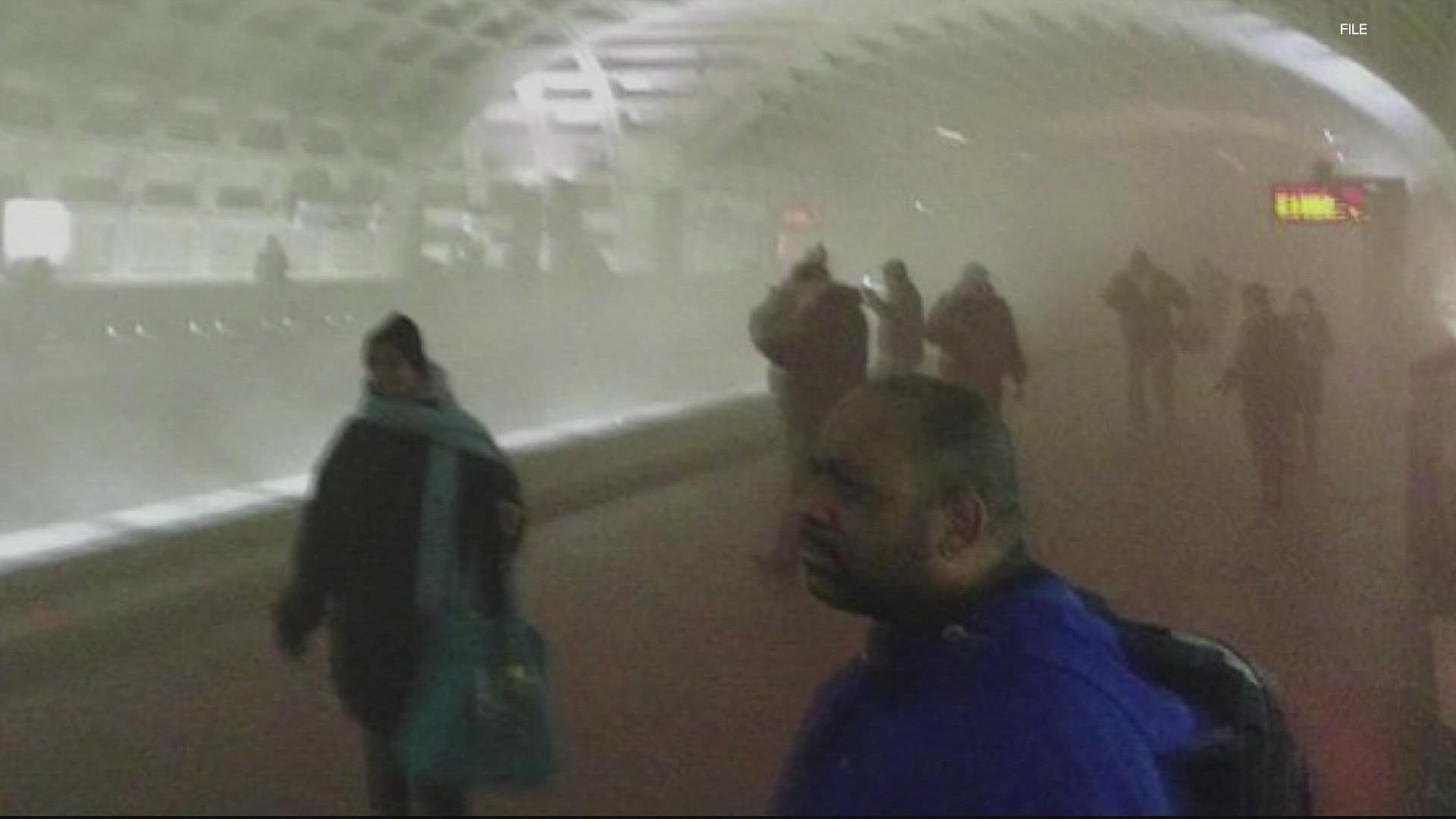WASHINGTON — As more people go back into the office, Metro is reporting an increase in ridership. In fact, Metro leaders said there is a risk of overcrowding on the red line during rush hour. This comes as a new audit finds WMATA still has work to do to ensure riders get to their destination safely.
Thursday, Metro leaders and District partners cut the ribbon outside of its new headquarters in Southwest. But as the Washington Metropolitan Area Transit Authority looks to the future with a new GM and new building, its past keeps coming up.
The communication breakdown during a deadly smoke incident at L’Enfant Plaza back in 2015, is still a problem today according to a new audit by the Washington Metrorail Safety Commission.
Investigators with the National Transportation Safety Board said when an arcing insulator filled the train with smoke killing Carol Glover, rescue crews had to resort to using their cellphones to communicate because their radios did not work.
Now, the Safety Commission said these ongoing communication issues are failures of maintenance, training and oversight. The audit found work orders were being routinely closed before repairs were even complete and equipment was kept in rooms that show “signs of recurring water, dirt and dust intrusion.”
“My hope is that the commission works hand in hand with the management to address any safety or maintenance concerns,” said Mayor Muriel Bowser.
“My job is to identify problems and fix them,” said Metro General Manager Randy Clarke, “and make sure everyone understands our job is to provide safe reliable frequent service for this region.”
At the time, General Manager Randy Clarke hadn’t reviewed the audit but said his mission is to work with the safety commission. In fact, WMATA’s own chief safety officer is working with the Safety Commission to return the 7,000 series cars back to full service. Though there is still no root cause of the wheel failure that led to last fall’s train derailment, Metro continues to test the trains for safety and reliability. Clarke said with increased ridership and a risk of overcrowding, getting those trains back online is a priority.
“Until that fleet is back there’s no other way for me to say it,” explained Clarke. “I know people are frustrated. People want more service, and I can’t get more service without more trains.”
The WMSC auditor also praised Metro for an ongoing project to fix the radio system citing that 80% of the work below ground is already done. There is no timeline, though, for the project completion.

